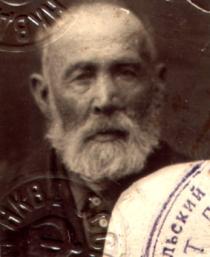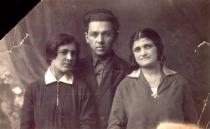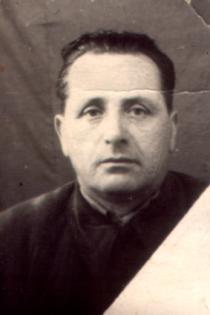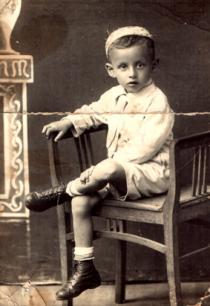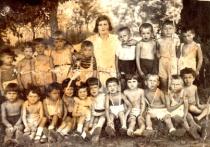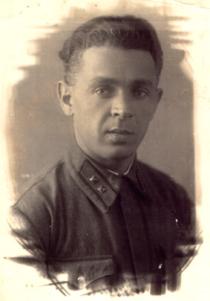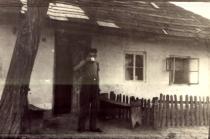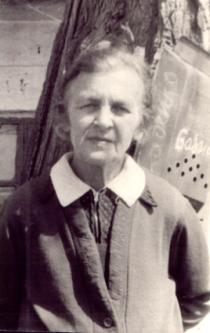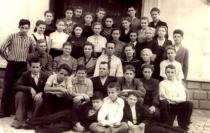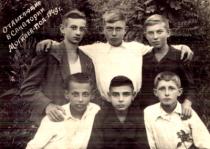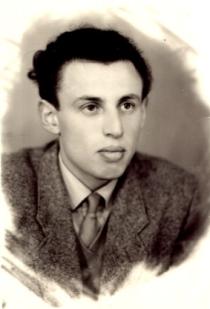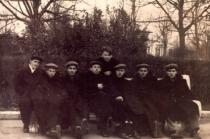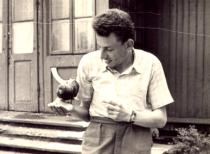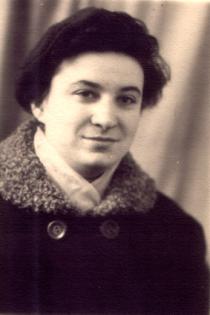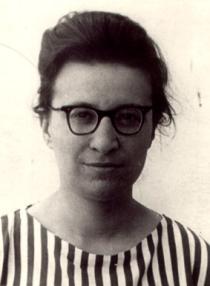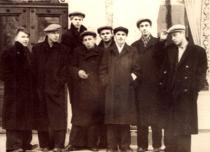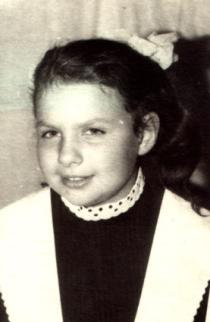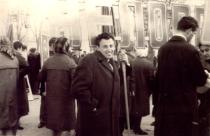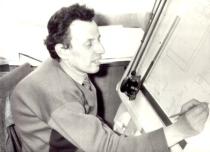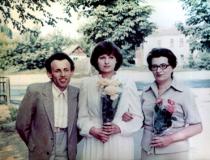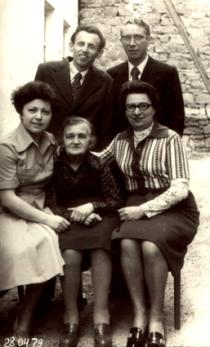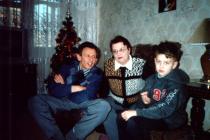My mother Paya Leger, photographed shortly after the Soviet troops liberated Mogilyov-Podolskiy. This photo was taken in Mogilyov-Podolskiy in 1943.
In 1930s mama studied at a course for junior medical personnel: attendants and medical nurses. Her dream was to enter a medical college, but this dream was not to come true. She studied and worked as an attendant and then medical nurse in the town hospital. Mama loved her job. My parents got married in 1928. They had a traditional wedding with a chuppah and a rabbi. Mama and papa rented a little house with one room, a small kitchen and a fore room on a hill in the suburb of Mogilyov-Podolskiy. I was born there in 1935.
In July 1941 Germans established a Jewish ghetto in the center of the Mogilyov- Podolskiy. It was surrounded with a high stone fence with barbed wire on top of it. The gate was guarded by Romanians. Mama believed I had to study and taught me to read, write and count. Many Jews deported from Romania and Moldavia knew German. Mama hired a school teacher from Bucharest to teach me German. I managed to learn the curriculum of almost 2 years of school in the ghetto.
When adults got together, all they talked about was that we would be exterminated soon and the ghetto will be liquidated. This was terrible. I was just a child, but I can still remember the feeling of horror and despair that overwhelmed me, when they spoke in this manner. All inmates of the ghetto had this expectation of the end despite their age. Adults and children were sort of living our last days. Hungry and cold during a day, we waited for them to come and capture us at night… Every day and every night could be the last in life. In March 1943 this expectation of the end was particularly acute. At dawn on 19 March we heard explosions. We saw 3 Soviet tanks coming into the town. They stopped and the tank men showed up. People were coming closer to hug and thank them. They opened their field kitchen and cooked cereals with tinned meat. It had a magic and long-forgotten taste. We felt so happy. We knew that the war not over yet, but we were free.
In 1946 my sister Gusta was born. Mama stayed home through the period of breastfeeding my sister. Later she went to work as a laboratory assistant at the sanitary station. We lived near the laboratory and in the evening all microscopes and reagents were taken to our house for the sake of safety. Mama showed me some specimens in the microscope and I liked watching them. Mama retired in 1983, when she turned 80.

